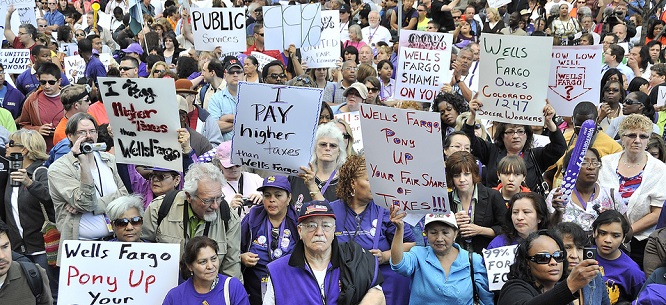In the latest issue of Dissent magazine, Joseph A. McCartin, the director of Georgetown University’s Kalmanovitz Initiative for Labor and the Working Poor, mentions Bargaining for the Common Good as he writes about how unions should respond to the Supreme Court’s recent Harris v. Quinn decision.
The decision took away the power of a union to collect mandatory “agency fees” from the home care workers it represents in collective bargaining, which will have implications for low-wage home care and day care workers, a large proportion of whom are women and people of color, around the country.
McCartin writes:
Anticipating the Harris decision, representatives of these workers joined 130 labor and community activists in Washington, D.C, a month ago for a conference called Bargaining for the Common Good (hosted by the Kalmanovitz Initiative, of which I am the executive director). They vowed to break the straitjacket of old-fashioned collective bargaining and create new community-labor bargaining alliances focused on advancing the common interests of workers—public and private—and defending the communities in which they live.
Read more in Dissent magazine.
